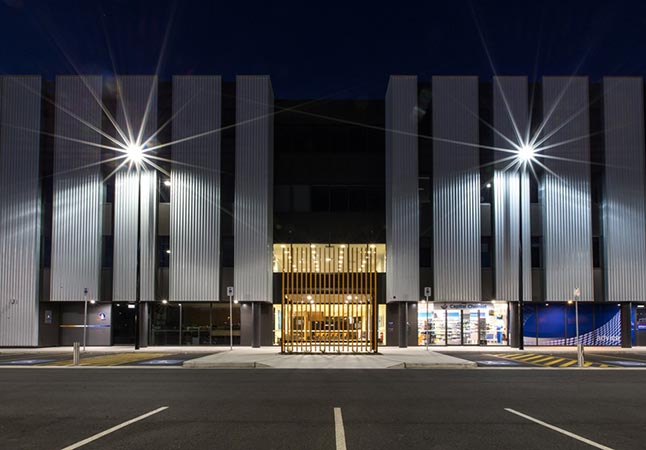Marcus Butler
19 March 2015
The University of Canberra has opened its fourth research institute with a focus on health and addressing what has been described as some of the most complex and wicked problems facing humanity.
The Health Research Institute (UC-HRI) will span the entire University, drawing in experts in diverse disciplines with a focus on health outcomes.
Its founding director, professor of health research, Rachel Davey, said the Institute will draw together expertise from fields which may not normally be associated with health research.
"We will see researchers from the traditional disciplines at the University of Canberra, like biomedicine and biotechnology, clinical sciences and public health.
"What may surprise some people is that we're already seeing researchers in urban planning and architecture, governance and law, information technology, environmental studies and design interested in becoming involved," Professor Davey said.
Any University of Canberra researcher is eligible to become a member of the UC-HRI, so long as their work has a health focus.
Professor Davey said the Institute will help to foster collaborations between disciplines which might not otherwise operate in the same spheres.
"We aim to address real world issues and some of the wicked problems plaguing health, but that requires collaboration from multi-disciplinary and trans-disciplinary perspectives," she said.
Among the foundation members of the UC-HRI is Roland Goecke, whose expertise is in software engineering.
His research on 'affective computing' has real world health implications, producing a system which can assess and interpret human facial expressions to provide measurable data for mental health clinicians.
Dr Goecke says the same technology can also be applied to dementia, to schizophrenia and bipolar disorder.
"We're looking at young children and understanding when early warning signs start showing up so there's potential for early intervention," he said.
He said that the UC-HRI will benefit researchers in tackling major problems and delivering outcomes towards better health care.
"The UC-HRI is a very exciting initiative that will be a strong benefactor to the University and to research in general and also will really bring people together that otherwise may not be working together," Dr Goecke said.
The UC-HRI will also provide important guidance and a firm foundation as researchers take their discoveries to the world.
The University's Deputy Vice-Chancellor (Research) Frances Shannon said that the Institute aims to enhance the impact of research through partnerships with government, industry and the NGO and community sectors.
"The UC-HRI will give researchers a firm foundation and solid backing to take their discoveries through the commercialisation process and to see them put into action in the real world," Professor Shannon said.
"There will be researchers working within the UC-HRI who produce ideas, methods and techniques, they will likewise be guided by the Institute and their colleagues to bring their discoveries to policy-makers, practitioners and the health industry more widely."
The Institute will operate in a virtual space across the University, allowing researchers from various faculties to continue to operate within their own spaces, while still being a part of the larger organisation.
For more information on UC-HRI visit here.



